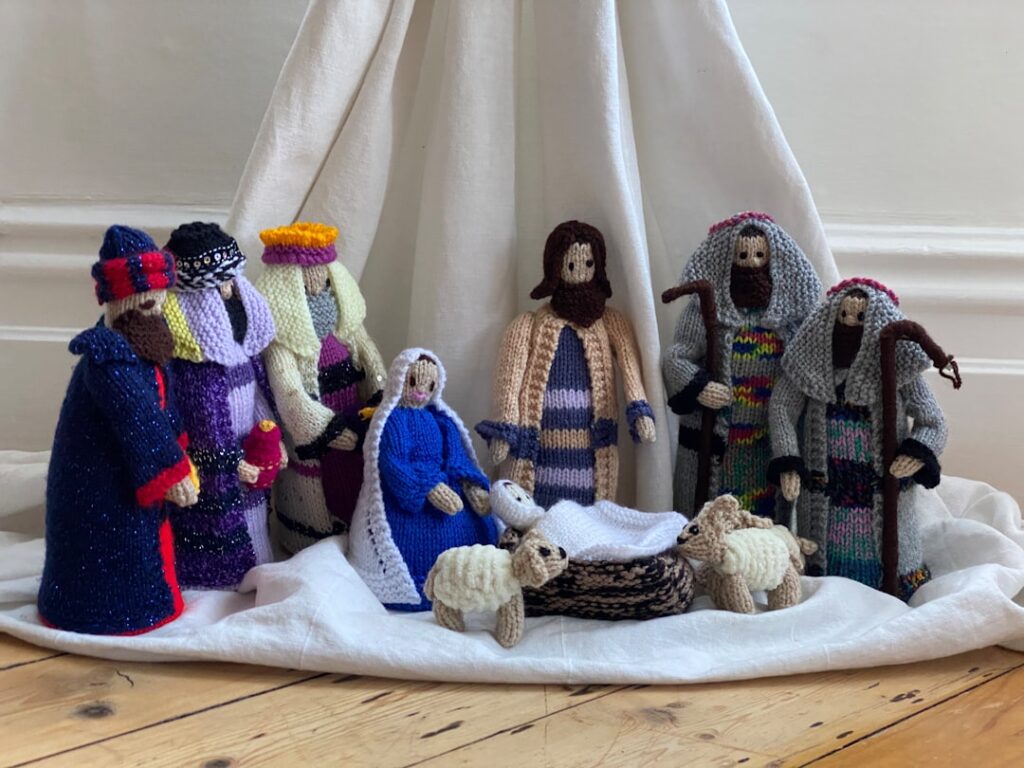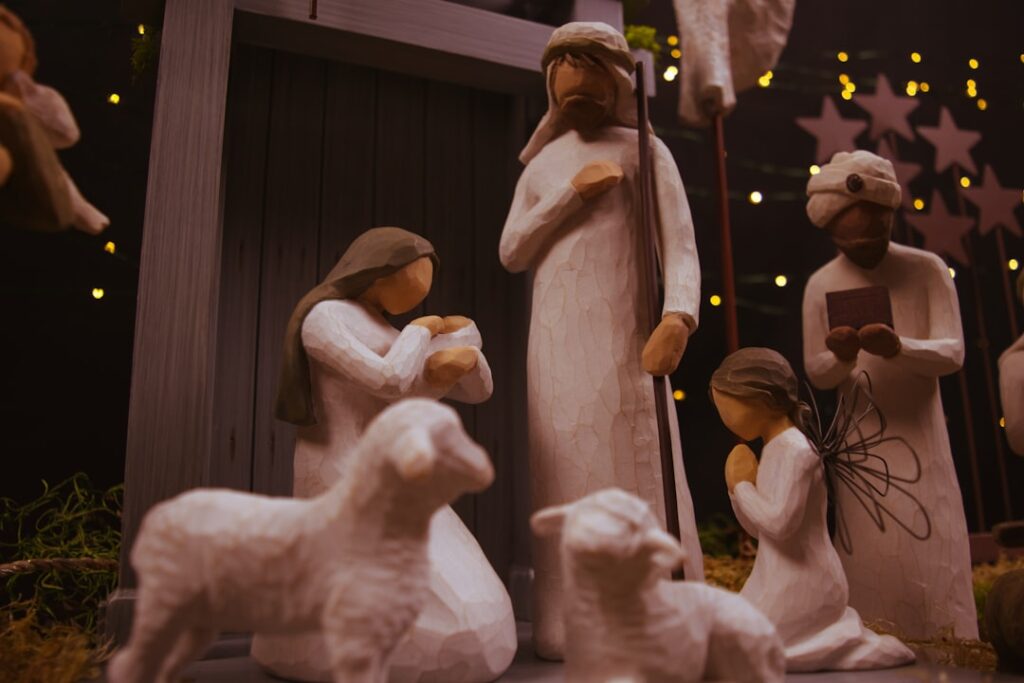
Leviticus is not the easiest book to read or understand. If the Bible were a marathon, Leviticus would be the mile where many well-intentioned runners drop out. We start off strong in Genesis, captivated by the creation narrative and the dramatic lives of the patriarchs. Exodus keeps the momentum going with its epic tales of plagues, parted seas, and divine encounters on mountaintops. But then we reach Leviticus—a dense forest of laws about sacrifices, skin diseases, and dietary restrictions. It’s as if our riveting novel suddenly turns into a technical manual for ancient priests, filled with terminology and measurements that we can only guess at. A cubit is roughly the length of an arm—but whose arm?
What if Leviticus isn’t a detour but, as John Piper would say, “a hidden gem waiting for discovery”? What if, beneath its layers of ancient rituals, rules, and regulations, lies a profound message about holiness, grace, and redemption that speaks directly to us today?
When you begin reading the Bible, it’s like embarking on an exhilarating road trip through the scenic landscapes of Scripture. You experience the awe-inspiring peaks of Genesis and the dramatic valleys of Exodus. Then, without warning, you find yourself in a seemingly endless desert called Leviticus. The temptation to speed through—or better yet, find an alternate route—is real.
But deserts often hold treasures not found elsewhere. Sometimes, the most unexpected places reveal truths that reshape our entire journey.
When we turn over the first pages of Leviticus, we need to tackle its big theme head-on: holiness. “Holy” might conjure images of austere saints like Augustine, Luther, or Calvin, or suggest unreachable standards. But at its core, holiness means being “set apart.” It’s less about halos and more about heart posture. It has more to say to you and about you than you may realise.
In Leviticus, God essentially tells the Israelites, “I’ve rescued you from Egypt, not just so you can wander aimlessly, but so you can be a people who reflect who I am.” He calls them to be different—not for the sake of being different, but to embody a way of life that points back to Him, acting as “mirror-images.”
Imagine being an Israelite back then. Your neighbours engage in all sorts of dubious practices—idol worship, exploitative rituals, you name it. But you’re called to live differently, to march to the beat of a different drummer. It’s not about arbitrary rules; it’s about embracing an identity rooted in a relationship with the divine. People face similar challenges today with social media and the other distractions of entertainment and cultural engagement.
The Grace Hidden in the Regulations
At first glance, Leviticus might seem like a rulebook written by someone who really loves rules—like, really loves rules. But if you look closer, it’s less about regulation and more about restoration—ensuring we do not lose the good that we have.
Take the sacrificial system, for example. Yes, there are detailed instructions for offerings and rituals, but behind every sacrifice stands a God who desires reconciliation with His people. Every sacrifice, offering, and ritual is an opportunity not just to put things right but for relationships to be restored. The sacrifices aren’t hoops to jump through; they are necessary bridges back to a relationship fractured by wrongdoing.
Consider the Day of Atonement—an essential yearly ‘reset button’ for the entire nation. This profound ritual uses two goats-one is sacrificed, symbolising the payment for sin – and the other, the “scapegoat,” carries the people’s sins deep into the wilderness, symbolically removing their transgressions. It’s a powerful picture of both justice and mercy. It was God’s provision and initiative – who would have guessed it?
Sound familiar? It should, because it foreshadows something—or rather, Someone—far greater.
A Sneak Peek of What’s to Come
Here’s where things get interesting; Leviticus isn’t just an ancient handbook (or rather, a scroll); it’s a preview of the main feature—Jesus Christ.
Every single, solitary sacrifice, every priestly duty, every ritual purity law acts as a signpost earnestly gesturing and pointing forward. The sacrificial lambs? They hint at the ultimate Lamb of God who takes away the sin of the world. The high priest entering the Holy of Holies? A precursor to our Great High Priest, who enters not just a man-made sanctuary but heaven itself on our behalf, not every year but just once – and sites down – settling things once and for all.
The writer of Hebrews puts it brilliantly: all these rituals were “a shadow of the good things to come” (Hebrews 10:1, ESV). They set the stage for the grand narrative of redemption that finds its climax in Jesus.
From Obligation to Invitation
So, what does all this mean for us today? Do we need to dust off our copies of Leviticus and start following dietary laws? Not quite, and to be fair, who wants to?
Understanding Leviticus through the 4K HD lens of Jesus transforms our approach to holiness. It’s no longer about ticking numerous boxes to earn favour (it never was)but responding to the grace we’ve already received, that’s been lavished on us (scripture please).
Peter echoes this when he writes, “But just as he who called you is holy, so be holy in all you do” (1 Peter 1:15, ESV). Holiness becomes less about duty and more about identity. It’s about becoming who we were always meant to be. God is always at work redemptively with us.
If grace is the vast ocean we’ve been plunged into, holiness is learning to swim in its depths. It’s an ongoing journey of transformation, empowered by a relationship, not enforced by regulations.
Walking the Talk
How does this ancient book impact our 21st-century lives today with all the challenges and conflicts we face in life?
Firstly, it challenges us to consider what it means to be set apart in our context. In a world that often blurs moral lines and celebrates the “me first” mentality, living differently isn’t just countercultural—it’s revolutionary.
Being holy might look like choosing integrity over convenience, generosity over greed, and forgiveness over bitterness. It’s about letting our lives reflect the immense grace we’ve received.
Secondly, it invites us to embrace grace more fully. Recognising that we can’t achieve holiness through sheer willpower and determination frees us from striving. Instead, we rely on the One who has already bridged the gap – for us.
The Beauty in the Details
Sometimes, the smallest details in a story carry the most weight. Leviticus brims and overflows with such details, and when we take the time to unpack them, we discover multiple layers of meaning. An easy example is the meticulous instructions for the Tabernacle weren’t because God is meticulously fussy about interior design. Each element symbolised aspects of His character and His relationship with His people. The lampstand, the bread of the Presence, the altar of incense—all point to deeper spiritual truths. Everything would make you think.
It’s like a divine tapestry where every solitary thread contributes to the overall masterpiece.
Rediscovering the Wonder
Perhaps the real issue isn’t that Leviticus is boring but that we’ve lost our sense of wonder and purpose. We’ve become so accustomed to the grand narratives that we overlook the beauty in the intricate.
Leviticus invites us to slow down, ponder, and delve into the mystery of a God who is both transcendent and immanent—utterly holy yet intimately involved in the details of our lives.
It’s like listening to a complex piece of music. At first, it might seem overwhelming or monotonous. But as we tune in, we start to notice the harmonies, the interplay of instruments, the crescendos and the augmented and diminished chords. What seemed inaccessible becomes enthralling, captivating, thrilling and inspiring. That’s what the Word of God is like if you give it a chance!
Embracing the Tension
Navigating the tension between holiness and grace can feel like walking a tightrope. Lean too far one way, and “whoops!” you risk legalism; lean the other, and you slip into “yawn!” complacency.
But perhaps tension isn’t something to resolve but to embrace. After all, a guitar string only produces music when it’s under 443mhz tension – and in tune. Leviticus holds this tension beautifully. It presents a God who is uncompromising in His holiness yet unfathomable in His grace. A God who sets high standards but provides the means to meet them through just Himself.
An Unexpected Adventure
Maybe Leviticus isn’t the roadblock we thought it was, maybe it’s more like an unexpected detour that leads to breath-taking vistas we wouldn’t have encountered otherwise, and so what if we approached it not with dread but with anticipation? What treasures might we uncover? What insights might we gain about God, ourselves, and the grand story we’re part of?
A Challenge and an Invitation
We have a challenge before us to revisit Leviticus, not as a tedious obligation but as an adventure, to ask questions, wrestle with the difficult passages, and seek to understand the heart behind the laws. In doing so, we may very well find that the God who seemed distant and demanding is actually drawing us into a profoundly deeper relationship. We also might discover that holiness isn’t a heavy burden but a gift—a way of living that brings freedom, purpose, and joy.
As we continue our journey through Scripture, we don’t need to skim or skip the challenging parts – they’re often the best part of the roast meat – where the richest lessons lie. Leviticus may require meticulous and patient digging, but the gems you find are worth the effort.
The Bible isn’t a collection of isolated books but a cohesive, deliberate, intentional narrative that points us straight at Jesus. Every law, prophecy, poem, and letter contributes to the tapestry of God’s love-inspired Christ-glorifying act of redemption.
Allow the Scriptures—even the tough bits—to shape us, challenge us, and draw us closer to the One who inspired them.
Stepping Into the Story
In the end, Leviticus isn’t just about ancient rituals; it’s about a timeless God inviting us into His story. A God who cares about the details, who provides a way when there seems to be none, and who calls us to be part of something bigger than ourselves.
The next time you find yourself trudging through its pages, pause and wisely consider: What might God be saying to me here? How does this connect to the bigger picture? And how might understanding this deepen my relationship with Him?
Who knows? You might just find that Leviticus becomes one of your favourite stops on the journey—a place where the sacred meets the everyday, and where ancient words breathe new life into our modern world.
Embrace the adventure. Dive into the mystery. The journey is just beginning.






